


































Medical aesthetics has revolutionised the skincare sector and opened the door to cutting-edge procedures that exceed Nigeria’s standard of beauty care. Since its beginning, the beauty sector has expanded, providing answers to skin issues that were previously challenging to address locally. Medical aesthetics now seeks to enhance lives, increase self-esteem, and improve looks. With each new cutting-edge treatment, the industry has shaped a new era in beauty where science and care meet. Onyeka Michael Ugwu, a certified aesthetician and senior laser technician at Hello Perfect, is one of the key players in this movement. After training and working in America, Onyeka returned to Nigeria in 2019 to start Hello Perfect, a skin aesthetics and laser clinic that has transformed skincare procedures in Nigeria. Onyeka’s method is what you would call a hybrid, combining science and a sincere desire to make people feel good about their skin, as her journey into medical aesthetics was driven by a passion for empowering individuals through skincare and enhancing confidence from within.
Read Onyeka Michael Ugwu’s story on pages 8 through 10.
This week, the beauty page discusses hair gloss treatment, a procedure that helps revive the colour of your hair, adds shine, and enhances its overall appearance. Everyone wants smooth, shiny, healthy hair, so don’t miss this article on page 12.
Downtown Confidential focuses on cliché relationship advice. On page 15, we discuss when you should or shouldn’t take advice from people.
As usual, our movie review page has a banging playlist for you. To download the music, click on the instructions beneath the QR codes on page 16.
Lagos Fashion Week just ended, and the designers served up a storm. On pages 4 to 5, we highlight some of our favourite designers.
Until next week, enjoy your read.







SUNDAY, NOVEMBER 3, 2024 THEWILL NEWSPAPER • www.thewillnews.com





SUNDAY, NOVEMBER 3, 2024



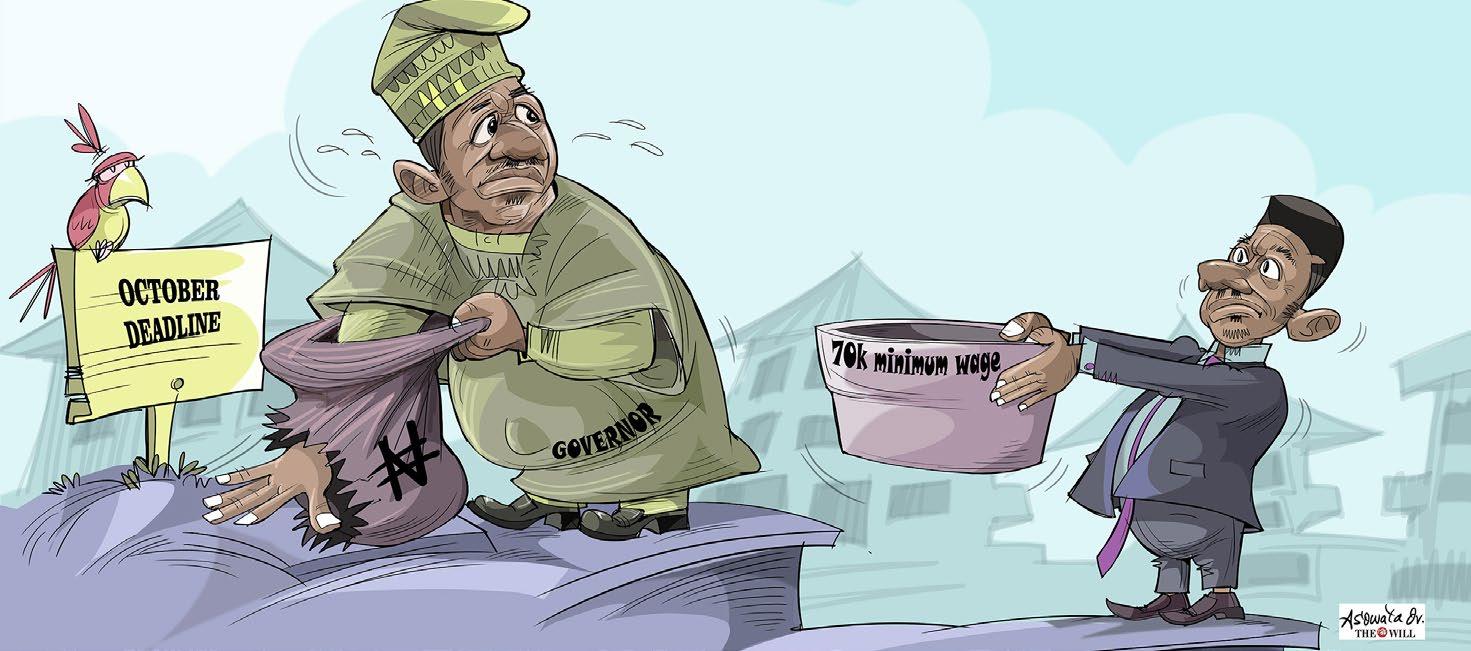
BY AMOS ESELE WITH UKANDE ODEY, ANIEKAN BASSEY, KAJO MARTINS, SEGUN AYINDE AND SUNDAY OGBU
The memo was dated Tuesday, October 22, 2024, but the story broke on Friday, November 1, 2024. It said that salary payments of civil servants in 12 Ministries, Departments and Agencies, MDAs, would face delays between October and December 2024.
According to the memo, which was addressed to the staff of the Voice of Nigeria, VON, the Director of Press at the Office of the Accountant-General of the Federation, Bawa Mokwa, who did not mention other MDAs affected , stated that the notice was, “consequent to the Federal Government’s implementation of the minimum wage in September 2024 and the non-inclusion of the 40 percent CONPSS Peculiar Allowance in the 2024 budget.”
As a result, the Voice of Nigeria personnel budget has been exhausted. “VON’s personnel costs from the month of October to December 2024 will, therefore, have to be augmented from the Service Wide Vote,” he added.
Although 12 MDAs may appear small in number when compared to the 943 MDAs in the country, the memo implies that the implementation of the minimum wage at the federal level is beset with challenges. In fact, when THEWILL contacted some workers at VON, the response was revealing.
“You are not talking about payment of the old wage, you are asking about the new minimum wage?” a senior staff of the organisation told this newspaper on Friday. “This envelope system of funding the agency did not start today. It is always exhausting and we have to look for ways to argue about salaries.” Investigation shows that agencies like the News Agency of Nigeria, NAN, are also affected. So too is the Federal Inland Revenue Service, FIRS, and the National Identity Management Commission, NIMC, to name a few.
While this story of delayed or staggered payment post-minimum wage is evolving at the national level, a similar scenario is playing out in many states across the country. Since President Tinubu signed the new national minimum wage of N70,000 into law on Monday, July 29, 2024, up from the previous N30,000, many states have expressed their willingness to either adopt the new wage or pay even higher wages. As at press time on Saturday afternoon, 27 state governors indicated interest in paying the minimum wage. They are Babajide Sanwo-Olu of
Lagos State; Mohammed Bago of Niger State; Peter Mbah of Enugu State; Duoye Diri of Bayelsa State; Alex Otti of Abia State; Abdulrahman Abdulrazaq of Kwara State; Siminalayi Fubara of Rivers State; Muhammed Yahaya of Gombe State; Ahmed Ododo of Kogi State; Dapo Abiodun of Ogun State; Godwin Obaseki of Edo State; Umo Eno of Akwa Ibom State; Charles Soludo of Anambra State; Dikko Radda of Katsina State; Frances Nwafiru of Ebonyi State; Ahmadu Fintiri of Adamawa State; Lucky Aiyedatiwa of Ondo State; Sheriff Oborevwori of Delta State; Abdullahi Sule of Nasarawa State; Seyi Makinde of Oyo State; Babagana Zulum of Borno State; Ademola Adeleke of Osun State; Hyacinth Alia of Benue State; Nasir Idris of Kebbi State; Uba Sani of Kaduna State; Abba Yusuf of Kano and Governor Umar Namadi of Jigawa State.
So far, only seven among these 27 states have started paying the new minimum wage as at October 2024. They are Lagos, Edo, Delta, Adamawa, Ogun and Kwara. Among the remaining 21 states that have announced their readiness to pay the wage, 16 have scheduled November as take- off date. They are Kano, Kebbi, Kaduna, Katsina, Niger, Jigawa, Gombe, Abia, Enugu, Anambra, Akwa Ibom, Bayelsa, Ebonyi, Borno, Kogi and Rivers. The remaining five states, among those that have announced readiness to pay, have set up minimum wage committees. They are Oyo, Osun, Nasarawa, Ondo and Benue.
Among these states, 15 have offered to pay above the N70,000 minimum wage. They are Lagos, N85,000; Bayelsa, N80,000; Niger, N80,000; Delta, N75,500; Enugu, N80,000; Ebonyi, N75,000; Rivers, N85,000; Kogi, N72, 500; Ogun, N77,000; Gombe, N71,451, Kebbi, N75,000; Akwa Ibom, N80,000, Ondo N73, 000; Kaduna State N72,000 and Kano, N71,000.
Defaulting states where the new minimum wage is yet to be set are Plateau, Sokoto, Zamfara, Imo, Bauchi, Taraba, Ekiti, Cross Rivers and Yobe. The deciding factor for this indecisiveness on the part of some governors is lack of steady flow of revenue. States like Lagos, Rivers, Delta, for example, have hefty Internally Generated Revenue and complementary bigger Federal Accounts Allocation Committee, FAAC, collection, compared to states like Taraba, Kebbi, Ebonyi and Cross Rivers, which depend on federal allocations.
These nine states -Plateau, Sokoto, Zamfara, Imo, Bauchi, Taraba, Ekiti, Cross Rivers and Yobe-that are yet to set up a
minimum wage committee or are about to do so with no clear picture of what would happen next on this matter.
As at press time, it was still unclear when the new minimum wage will become a reality in Plateau State.
A NULGE official in Plateau State, Yohanna Makwin simply told our Correspondent via phone that “negotiations are still going on”, but added quickly that “no worker will be ready to receive less than N70,000 as stipulated by the law no matter how the negotiations go”. He said the “negotiations” are basically to consider all “the consequential adjustments” that have to be made for the new salary regime to have meaning.
After the EndBadGovernance Protests of last August, while addressing the youth group who came to the Government House in Little Rayfield to present their demands to President through the State Governor, Caleb Mutfwang, among other things, maintained that the Plateau State Government will not be able to cope with the new minimum wage given its peculiar challenges and the subsisting economic realities. This led to the constitution of a committee to further negotiate with organized labour on a workable way forward.
Although a director in the Plateau civil service confirmed that “the committee is still working,” the state NLC Chairman, Eugene Manji, did not respond to calls to state the position of the NLC and the status of the continuing negotiations vis-a-vis the expectation of the workers.
The Cross River State Government has maintained a deafening silence on the new minimum wage. During this year’s Workers’ Day celebration at the U.J Esuene Stadium in Calabar, Governor Bassey Out proposed N40,000 as minimum wage to workers in the state. This was yet to be fully implemented in the state before President Tinubu signed the law on the new N70,000 in June.
During the presentation of this year's budget of N498 billion on Thursday, October 30, the state government said nothing about the minimum wage. Its silence has however sparked concern among workers in the state and prompted the government to announce the committee for the implementation of the new minimum wage in the state.
According to the Chief Press Secretary to the Governor, Nsa Gill, Otu has approved the constitution of the joint public service negotiating and implementation committee on the new minimum wage and its consequential adjustment in the state.
"The committee will commence sitting any day from 1st November, 2024 subject to its convenience and round up on time to enable compliance in the state", Gill said, adding that

the national minimum wage is still ongoing.
what we have seen from him and his team, we are not happy.”
Aromeh further stated that though the state government based its argument on internally generated revenue, available reports show that Anambra is not better than some states that have adopted the Federal Government’s template for the new minimum wage. Upon enquiry, the Commissioner for Information, Law Mefor told THEWILL on Saturday morning that he is yet to understand the point the labour leaders were making. “Have you seen the Federal Government’s template,”? he asked, “I have not seen it so I cannot verify the labour leaders’ claim.”
In the case of Kwara, organised labour demanded the immediate reversal of the new tax regime imposed on workers in the state following the implementation of the new minimum wage of N70,000. Organised labour expressed dismay that “the state government decided to start a notorious percentage tax deductible from workers’ salaries contrary to the negotiation it had with the government for tax relief for workers upon the payment of the
After a joint State Administrative Council (SAC) meeting of the Nigeria Labour Congress (NLC) and Trade Union Congress (TUC) in Ilorin at the weekend, the labour leaders, in a joint statement, called for a downward review of the tax percentage on salaries of workers in the state. The NLC Chairman, Comrade Muritala Saheed Olayinka; his TUC counterpart, Comrade Olayinka Onikijipa; state Chairman, Coalition of Health Workers Union (COHESU), Comrade Isaac Bolatito; and state Chairman and Secretary, Joint Negotiation Council (JNC), Comrade Saliu Suleiman and Comrade Tunde Joseph lamented that the state government was selective in its implementation of the new wage. The statement reads in part, “The SAC of Joint Labour Centres met today to review the outcome of the new minimum wage payment to Kwara workers as approved by His Excellency, Governor AbdulRahman AbdulRazaq. The committee observed with dismay the notorious percentage tax deducted from our
“This was at variance with government/labour discussion at the negotiation table for tax relief on added sum or status quo ante on the percentage tax deduction. The joint labour congress asked the state government to swiftly act on the demand of the labour to avert industrial disharmony. Responding to the labour leader’s demand, Acting Head, Corporate Affairs Department of the Kwara State Internal Revenue Service (KWIRS), Funmilola Oguntunbi, said that the minimum wage implementation and statutory deductions are in accordance with legal obligations. She added that “the gross income of workers is subject to statutory deductions, including Personal Income Tax, pension contributions, National Health Insurance Schemes(NHIS), National Housing Fund (NHF), and insurance, where applicable.”

The State NLC chairman, Comrade Terungwa Igbe in a telephone chat with our Correspondent in Makurdi simply said, "Negotiation is ongoing". On his part, the State chairman of Trade Union Congress (TUC), Comrade Gidea Akaa, dispelled the rumour that the Benue State Government was planning to pay N40,000 as minimum wage.
According to him, TUC and the State Government negotiation is still on the negotiation table for a proposed wage increase of between N75,000 to N77,000. He pointed out that as soon as agreement was reached, the parties would sign for implementation.
ALL THAT GLITTERS NOT GOLD
Investigation by THEWILL shows that while a growing number of states are announcing their readiness to pay the minimum wage, many are also plotting to “pay what they are capable of paying” and thus open a window for industrial harmony in their respective states.
Anambra and Kwara States exhibit this trait in their dealings on the minimum wage. And the labour leaders are reacting robustly. Not pleased with the way the Anambra State Government had resorted to computing its own wages, labour leaders at the weekend rose from a meeting and called on Governor Charles Soludo to use the template as agreed by organised labour and the Federal Government. The Anambra chapter of the Nigerian Union of Local Government Employees (NULGE), Anambra Chapter, Comrade Armeh Nicholas, made the appeal in Awka on Friday while addressing workers’ expectations from the new minimum wage. Aromeh said that organised labour in the state, comprising the Nigerian Labour Congress (NLC), Trade Union Congress (TUC), and NULGE, were collectively appealing to Soludo, in the interest of workers, to use the chart released by the Federal Government.
He said, “Yes, there is an issue of the new minimum wage on the ground and labour leaders, including NLC, TUC, and NULGE, have been meeting with the governor on the matter. In Anambra, unfortunately, the governor is not getting it right. Judging by
Oguntunbi said that if the deductions were not made, the state government would be unable to generate Internally Generated Revenue needed for developmental projects and employees’ personal obligations.
The joint labour congress asked the state government to swiftly act on the demand of the labour to avert industrial disharmony. Moreover, the Nigeria Union of Teachers claim that N1,000 was being deducted from the salary monthly since the implementation of the new wage Rafiu Ajakaiye, Chief Press Secretary to the gov ernor told THEWILL that what may look as differences between the government and labour over the minimum wage is actually a matter of interest.
He said, “Trade union is an amalgam propelled by interest, they are driven by their own interest, which is okay. The government also has a larger duty to address the larger interest of the state
“First, let me state that we did not have any understanding with any governor that they must pay the new wage by October. It was a selfimposed deadline that we thought we needed to operate with and on the strength of that we have called our National Executive Council meeting for Port Harcourt next week to take the pulse of our 36 states chapters including FCT, Abuja
and the citizens. Government does not have any problem with the union. Whatever was implemented at the level of the minimum wage was what was agreed at the level of negotiation. The government is implementing the N70,000 minimum wage and the consequential component of it which was agreed by the minimum wage committee which the labour leaders were party to. On the tax issue, the Internal Revenue Agency issue has issued a statement clarifying the issue of PAYE, (Pay As You Earn), which shows that the government has not done anything unusual, just like it has been done in other states. On the deduction of N1,000 monthly as claimed by the NUT, the government can only act as an arbiter. It is an issue between teachers and the labour. The issue has come to the attention of the government and it is being looked into.”
In another instance, some states have jumped on the minimum wage announcement bandwagon while their minimum wage committee is stalemated in the attempt to pressurise labour into negotiating a flexible wage regime. Ondo State is a major example. Giving reasons for the delay in minimum wage implementation last week, the Head of Service, Mr. Bayo Philip, said the delay was due to the ongoing preparation of the consequential adjustment table by the technical committee. According to him, the “Committee saddled with the preparation of the consequential adjustment has been working round the clock to ensure that whatever salary table that is approved would be sustainable and not affect the government’s resources in attending to other critical public issues.”
Ogun State government begun payment of the N77,000 new minimum wage to workers in the state last week. Some workers, who spoke anonymously, told THEWILL on Friday that the government began the payment last Thursday.
"They have begun the payment, they started yesterday and I am sure everything would have gone rounded up before the weekend" one of the state workers said. Contacted for comments, the Special Adviser on Media and Strategy to the Governor, Mr Kayode Akinmade, gave the assurance that the state government would soon commence payment.
He stated that since Governor Dapo Abiodun made the pledge at a meeting with Labour leaders in the state, including the State Chairman of Nigeria Labour Congress(NLC) Comrade HammedBenco and his Trade Union Congress(TUC), counterpart, Comrade Akeem Lasisi, as well as the Head of the Service in the state, Mr Kehinde Onasanya, about a week ago, the payment would soon commence.
"The pronunciation was just made about a week ago. When the announcement was made, the SSG, the Head Service and labour leaders were there, it was a collective decision. What is necessary is to work on the modalities of the payment. What is necessary is that the deadline has been met and I know our people will begin to enjoy the adjustment of the new wages" Akinmade stressed. The NLC Chairman, Comrade Lasisi while reacting on Wednesday expressed confidence that the state government would pay workers.
The Nigeria Labour Congress, NLC, said it is aware of what is going on across the states regarding the implementation of the new wage and has scheduled a National Executive Council NEC meeting this week for the purpose of making an overall assessment before taking the next step. The General Secretary of the NLC, Mr Emmanuel Ugboaja told THEWILL on Friday that the union has called a NEC meeting for Port Harcourt this week.
He said, “First, let me state that we did not have any understanding with any governor that they must pay the new wage by October. It was a self-imposed deadline that we thought we needed to operate with and on the strength of that we have called our National Executive Council meeting for Port Harcourt next week to take the pulse of our 36 states chapters including FCT, Abuja, on the implementation of the new minimum wage in their various states. It is at the end of that meeting that we can now take a position. We will know those states that implemented the new wage in line with the agreed template, those that have not. We expect every chairperson to come with a report on the operational template the states are using, review it and see if it is making sense.” On the lack of implementation of the new wage at some Federal Government agencies, Ugboaja said that it will not be from lack of approval but “the stupidity of whoever is the Chief Executive of such an agency.”
He said, “There is no doubt that the Federal Government has committed to paying the minimum wage. It has done its consequential adjustment template. Any MDA that is not implementing it is not as a result of approval. In any case, there is no agency that does not have an affiliate of the NLC or TUC operating there, so we expect to also get reports from them at the Port Harcourt meeting. When we hear of such infringement we will take it up with the agency because the Secretary to the Federal, Ministers of Finance and Budget and Planning are all aware of the government’s approval.”
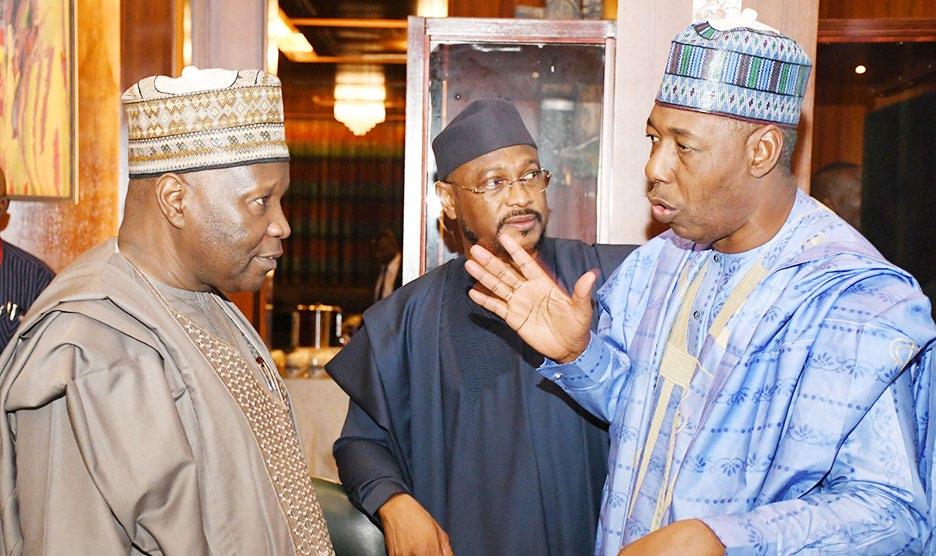
OBY FELIX IFIJEH
n the occasion of this yearís International Day to End Impunity for Crimes Against Journalists, Media Rights Agenda (MRA) calls on the Federal Governments to take decisive action to ensure the safety of journalists in Nigeria, including by complying with the February 16, 2024 judgment of a Federal High Court in Abuja directing it to take measures to prevent attacks on journalists and other media practitioners and to investigate, prosecute and punish perpetrators of attacks against journalists.
Ms Obioma Okonkwo, the Head of its Legal Department, MRA described the Federal Governmentís continued disobedience of the judgment, delivered by Justice Inyang Ekwo in a suit it filed against Attorney-General of the Federation in which the court granted the eight declarations sought by MRA and issued three mandatory orders as an affront to justice and the rule of law.
Recalling the courtís orders in the judgment directing the Federal Government to take measures to prevent attacks on journalists and as well as to investigate, prosecute and punish perpetrators of all attacks against journalists and other media practitioners, Ms Okonkwo said: ìThe culture of impunity being nurtured by the Federal Government through its failure to comply with and enforce the courtís judgment is deeply concerning.î
TheAttorney-General of the Federation and Minister of Justice, Lateef Fagbemi, SAN, has directed the transfer of the case file of #EndBadGovernance protesters from the office of the Inspector-General of Police (IGP).
This is coming amid outrage over the arraignment of minors among the protesters and the subsequent adjournment of their trial to January 2025.
The 118 protesters including minors, ages between 12 and 15, have spent over 80 days in police custody. They were allegedly arrested on August 3 and 4, 2024, and had since been in detention. They were arraigned on Friday, before the Federal High Court, Abuja, on a 10-count charge bordering on treasonable felony, rioting, destruction of public property, assaulting security officials, and looting/ theft of public property, among others.
THEWILL earlier reported that four minors among the defendants collapsed in Court as the charges were about to be read, forcing the court to abruptly halt proceedings.
However, at the resumed proceedings, all the defendants pleaded not guilty to the charges read to them, as four Minors were excluded from taking their plea due to ill health. They are to be arraigned at a later date.
Justice Egwuatu Obiora granted each of the defendants bail in the sum of N10 million with two sureties each, in like sum and subsequently adjourned the trial to January 2025. The court remanded the adults at the Kuje Correctional Centre, Abuja, while the minors were being remanded at the Bostal Childrenís Home, pending the perfection of their bail conditions. While the trial has triggered outrage among Nigerians, human rights activists, civil society groups, politicians, as well as Amnesty International, have called for immediate release of the protesters.
Reacting to the development in a statement sighted by THEWILL on Friday night, the AGF said he had directed a transfer of the case file from the police.
Titled: "EndBadGovernance Protest: AGF Intervenes, Seeks Casefile From Police", the statement personally signed by the AGF, reads:
"It has just come to my notice that the police have arraigned those arrested in connection with the endbadgovernance violent protest in court for various offences including treason.
"There are some issues my office will need to look into regarding the matter to enable me to make an informed decision.
"I am aware that the court has remanded the defendants in detention centres and adjourned the case to January.
Member of Parliament, Kemi Badenoch, has won the contest to lead the Conservative Party in the United Kingdom.

According to her, ìFar too often, crimes committed against journalists remain unresolved, and the perpetrators go unpunished. This impunity not only emboldens those who seek to harm or silence journalists and the media, it also undermines public confidence in the rule of law and democratic governance.î
Ms Okonkwo called on the government to prioritize the protection of journalists through concrete measures and action, including strengthening legal protections by adopting and implementing laws that protect journalists from violence and harassment and by ensuring the swift prosecution of those responsible for crimes against media professionals.
She also urged media organizations to take proactive measures to protect their staff and engender a supportive environment where journalists can perform their duties safely and without fear.
The 44-year-old MP for North West Essex defeated Robert Jenrick to secure the top job, replacing outgoing leader and former Prime Minister, Rishi Sunak, who lost the election as the British Prime Minister on July 5.
Badenoch secured 53,806 votes from Conservative Party members, to beat Jenrick, who polled 41,388 votes.

"It is the most enormous honour to be elected to this role", Badenoch said, giving her maiden speech as party leader shortly after the results were announced on Saturday.
The Conservatives suffered a bruising defeat in the UKís July 4 general election, with Prime Minister Keir Starmer's Labour government securing a landslide victory as voters grew weary of ongoing leadership changes and political infighting at the tail end of 14 years of Tory rule.
Badenoch said the Conservatives had to acknowledge its previous errors and change course.
"Our party is critical to the success of our country. But to be heard, we have to be honest. Honest about the fact that we made mistakes, honest about the fact that we left standards slip. The time has come to tell the truth, to stand up for our principles, to plan for our future. To reset our politics and our thinking and to give our party and our country the new start that they deserve. It is time to get down to business. It is time to renew", Badenoch added.
ntil the Federal Government explained the details of the new tax regime on Thursday, the pervasive fear in the North about the new tax reform bills before the National Assembly was that the bills were designed to
The source of the fear is that the bills rest on the derivation principle rather than the prevailing population as a means of
There are four bills, namely the Nigeria Tax Bill, the Nigeria Tax Administration Bill (NTAB) the Nigeria Revenue Service (Establishment) Bill and Joint Revenue Board Establishment Bill, which President Bola Tinubu had on October 13, asked the National Assembly to consider and pass. Earlier on Thursday, it emerged that governors from the North that were not the only ones opposing the Bills.
On their own, the Northern Governors Forum (NGF) met last Monday in Kaduna and rejected the proposed Tax Reform Bills. They demanded equity and fairness in the implementation of all Federal Government programmes
According to them, the bills were a proposed amendment to the distribution of Value Added Tax (VAT) to a derivationbased model, saying the bill is antithetical to the interests
They called on members of the National Assembly to oppose the bill, which they fear could jeopardise the well-
According to the Chairman of the forum and Governor of Gombe State, Mohammed Yahaya, the contents of the Bill are against the interests of the North and other subnationals, especially the proposed amendment to the distribution of Value Added Tax (VAT) to a derivative-

"This is because companies remit VAT using the location of their headquarters and tax office and not where the services and goods are consumed. In view of the foregoing, the forum unanimously rejects the proposed tax amendments and calls on members of the National Assembly to oppose any bill that can jeopardise the well-being of our people. For the avoidance of doubt, the Northern Governors’ Forum is not averse to any policies or programmes that will ensure the growth and development of the country. However, the forum calls for equity and fairness in the implementation of all national policies and programmes so as to ensure that no geopolitical zone is short-changed or marginalised."
Then on Thursday, all other governors joined the northern bandwagon as the National Economic Council (NEC), chaired by the Vice President Kashim Shettima advised that the Tax Reform Bill be withdrawn.
After the NEC meeting on Thursday, the Governor of Oyo State, Seyi Makinde, disclosed that the NEC decided to withdraw the bill due to disagreements and concerns raised by various groups. On Friday, Tinubu refused to shift ground. While receiving the NEC recommendation, he urged the 36 state governors to allow the process to take its full legislative process after which there could be public hearings.
Fearing that the bills were being politicised beyond the intention of the government, the Presidency, on Thursday, said that the proposed Tax Reform Bills currently before the National Assembly will benefit all states and not against the interest of the North.
Special Adviser to the President on Information and Strategy, Bayo Onanuga, said that contrary to fears and perceived marginalisation of the North, the tax reform bills would benefit all states and harmonise the country’s tax laws for greater efficiency.
While commending the governors and traditional rulers for supporting President Bola Tinubu over the success recorded in addressing the country's security challenges, Onanuga in a statement titled, ‘Explainer: Proposed Tax

“
At the moment, tax administration lacks coordination among federal, state, and local tax authorities, often resulting in overlapping responsibilities, confusion and inefficiency. Without reform, this inefficiency will persist.
Reform Bills Not Against the North; They Will Benefit All States’, highlighted the misunderstandings and misgivings around the tax reform already embarked upon by the administration.
He said President Tinubu and the Federal Executive Council recently endorsed new policy initiatives aimed at streamlining Nigeria’s tax administration processes, enhancing efficiency and eliminating redundancies across the nation’s tax operations.

These reforms, he explained, emerged after an extensive review of existing tax laws. The National Assembly is considering four executive bills designed to transform and modernise Nigeria’s tax landscape.
Explaining the intentions behind the proposed bills, Onanuga took one bill after the other. The Nigeria Tax Bill, he said, aims to eliminate unintended multiple taxation and make Nigeria’s economy more competitive by simplifying tax obligations for businesses and individuals nationwide. The Nigeria Tax Administration Bill (NTAB), proposes new rules governing the administration of all taxes in the country. Its objective is to harmonise tax administrative processes across federal, state and local jurisdictions for ease of compliance for taxpayers in all parts of the country. The Nigeria Revenue Service (Establishment) Bill seeks to rename the Federal Inland Revenue Service (FIRS), as the Nigeria Revenue Service (NRS), to better reflect the mandate of the Service as the revenue agency for the entire federation, not just the Federal Government. And the Joint Revenue Board Establishment Bill proposes the creation of a Joint Revenue Board to replace the Joint Tax Board, covering federal and all states’ tax authorities. The fourth bill also suggests establishing the Office of Tax Ombudsman under the Joint Revenue Board, which would serve as a complaint resolution body for taxpayers.
Onanuga said that the reforms will not lead to job losses. On the contrary, they are structured to stimulate new avenues for job creation by supporting a dynamic, growth-oriented economy.
"At the moment, tax administration lacks coordination among federal, state, and local tax authorities, often resulting in overlapping responsibilities, confusion and inefficiency. Without reform, this inefficiency will persist. The proposed laws aim to coordinate efforts between different tiers of government, resulting in better tax resource management and greater clarity for taxpayers,” he said.
After his detailed explanation meant to make plain the import of the bills, Onanuga addressed the main concern of the governors, saying that the proposed derivation-based VAT distribution model, which the Northern Governors oppose, it must be stressed that the new proposal, as enunciated in the Bill, is designed to create a fairer system.
He said, "The current model for distributing VAT is based on where the tax is remitted rather than where goods and services are supplied or consumed. The ongoing tax reform seeks to correct the inherent inequity in the current derivation model as a basis for distributing VAT revenue. The new proposal before the National Assembly outlines a different form of derivation which considers the place of supply or consumption for relevant goods and services. This means that states in the Northern region that produce the food we eat should not lose out just because their products are VAT-exempt or consumed in other states.
Available data shows that the derivation principle, though still cloudy, rings loudly in the proposed bills: Under the current VAT model, the revenue is distributed on a 15 percent 50 per cent and 35 per cent ratio among the federal, state and local governments. The proposed model envisages 10 per cent, 55 per cent and 35 per cent with 60 per cent to be distributed according to the principle of derivation. Meaning that location and consumption activities become major determinants in VAT collection and distribution. This is a logjam that the National Assembly will have to settle between the federal and state governments.
Nigerians are reeling on the throes of untold hardship, perhaps never expected at this stage of their national life. The situation is the direct fallout of reforms undertaken by the President Bola Tinubu-led Federal Government, in compliance with the World Bank and the International Monetary Fund (IMF).
in 2023 to stabilize the naira.
This has raised questions about the sustainability of Nigeria's mounting debt profile now over N143 trillion, amid scourge of the Breton Wood Institutions-backed structural reforms.

There is need for the leaders to shun profligacy while urging the citizens to exercise patience. Reexamining the sequence of the World Bank and IMF recommended reforms may be necessary to ensure that the people do not celebrate more funeral ceremonies than the success of the painful reforms
The two Brenton Wood Institutions had compelled Nigerian authorities to embark on structural reforms as a condition for the needed bailout amid Nigeria’s myriad of economic woes, which intensified in the nine years of the All Progressives Congress (APC)led federal government since 2015. Consequently, the World Bank and the IMF have provided Nigeria with facilities as the country goes cap in hand to find a solution to its battered economy. In the process, the Bola Tinubu Administration has borrowed a staggering $6.45 billion from the World Bank within just 16 months. This figure has surged following the recent approval of three new loans totalling $1.57 billion for various development projects nationwide. The total amount of loans approved by the World Bank over the past five years has reached an alarming $24.088 billion,
As the government continues to seek financial assistance, the country also obtained the resource-backed $3.3 billion facility from the Afriexim Bank
The fundamental reforms which hinge on the removal of fuel subsidy, the floating of the naira and implementing cost-reflective tariff for electricity distribution companies have pushed the country close to a hyper-inflation economy, raising inflation rate to 32.7 per cent in October 2024.
Incidentally, the reforms prescribed by the Breton Wood Institutions have turned out bitter pills the citizens must swallow to survive the consequence of years of fiscal mismanagement and corruption in the country’s leadership, culminating in Nigeria overtaking India as the poverty capital of the world.
An especially worrying dimension is the impact on food production - given the over 300 per cent rise in food commodities since mid-2023, resulting in hunger, malnutrition and misery suffered by millions of Nigerians.
The deputy country director of the Food and Agricultural Orgaisation (FAO), Salisu Mohammed, said recently that more than 1.8 million Nigerians are at the risk of high food insecurity.
Also, Cindy Mc-Cain, executive director of the United Nations World Food Programme, has reported that the UN agency needs a sum of $228 million to meet the food and nutrition
needs of 1.6 million people in the North East of Nigeria over the next six months.
It is noted that the current state of food security is threatened by the continuous intensification of insecurity alongside economic shocks, floods, and high cost of fuel resulting in excruciating hardship which sparked a public protest in August.
Amazingly, the economic hardship arising from the hard policies it pushes the government to adopt, the same World Bank predicts that millions of Nigerians are expected to fall into poverty due to inflation and slow economic growth.
The Federal Government should be transparent and sincere in its intervention programmes aimed at ameliorating the hardship that confronts the citizens.
The World Bank’s recommended actions to help Nigeria reduce poverty, including restoring macroeconomic stability, expanding social protection, creating wage jobs, building human capital, and boosting productivity in farm and non-farm household enterprise should be put into practice than mere rhetoric.
There is need for the leaders to shun profligacy while urging the citizens to exercise patience. Re-examining the sequence of the World Bank and IMF recommended reforms may be necessary to ensure that the people do not celebrate more funeral ceremonies than the success of the painful reforms.



NOJEEM YUSUF
wo sets of tax bills supposedly drafted by the Presidential Committee on Fiscal Policy and Tax Reforms, which could significantly alter the distribution of Value Added Tax (VAT) revenues
THE IMPLEMENTATION OF SUCH A SYSTEM DEMANDS A THOUGHTFUL TRANSITION. SUGGESTING A TWO-YEAR ADJUSTMENT PERIOD WOULD ALLOW BUSINESSES TIME TO BUDGET FOR THE ADDITIONAL COMPLIANCE COST AND ADAPT THEIR SYSTEMS AND FOR THE FIRS/ NRS TO DEVELOP THE NECESSARY INFRASTRUCTURE FOR ACCURATE VAT DISTRIBUTION
Current VAT revenue distribution under current law, VAT is allocated in a 15 per cent, 50 per cent and 35 per cent split to the Federal Government, State Governments (including the Federal Capital Territory), and Local Governments, respectively. For the portion attributable to State Governments (and perhaps Local Governments), states retain 20 per cent of the VAT revenue collected within their borders. 30 per cent of the VAT is distributed based on the population of the states, while the remaining 50 per cent is shared equally among all states. However, this formula lacks consideration for the principle of derivation, leading to perceived inequities where regions contributing more to VAT might not
Under the new proposal, the distribution would shift to 10 per cent, 55 per cent and 35 per cent for the same respective tiers, with a critical twist: 60 per cent of the VAT revenue would be distributed based on derivation. This means that where VAT is collected becomes as crucial as the amount collected,
The introduction of the derivation principle seems aimed at dissuading states that contribute more to the VAT pool from pushing for the administration of VAT to be handled by State Governments. A few years ago, Rivers State and Lagos State took legal action regarding this matter, which appears to have
For businesses, this principle introduces a new layer of complexity. This shift will compel businesses to trace their VAT collections to specific states and local government areas (LGAs), necessitating upgrades to enterprise resource planning (ERP) systems for accurate data collection. Federal Inland Revenue Service (FIRS), possibly soon renamed Nigeria Revenue Service (NRS), will require a sophisticated electronic system to manage this complex VAT administration.
A transitional period, possibly two years, might be necessary to allow businesses and tax authorities to adjust to these changes. Immediate implementation could lead to administrative failures and financial burdens on businesses, which might need to invest in technology and additional staff for compliance.
Determining the source of VAT could become a conundrum. For instance:
VAT on Imports: Imagine a scenario where a manufacturer imports raw materials through Lagos, but sells finished products across Nigeria. The VAT initially collected in Lagos for imports, plus differential VAT on sales must now be attributed to where the final consumption occurs, not where the import was cleared. There's also a bias towards port locations; for example, if a resident of Kogi State imports a car through Lagos for personal use, the import VAT would be remitted at Lagos port, while the actual point of final consumption.
Service-Based VAT: Consider Jaiz Bank, headquartered in Abuja, which pays a cybersecurity firm for services protecting its network nationwide. Here, the VAT paid cannot simply be allocated to Abuja; it needs to reflect where the cybersecurity service benefits, which might be all over Nigeria.
Telecommunications: With subscribers moving across states, how does a telecom company determine which state's VAT pool a call or data usage contributes to? These examples highlight the need for detailed administrative guidelines to simplify what could otherwise become an administrative quagmire. Even with the introduction of guidelines, one might intuitively anticipate that compliance with and administration of VAT will become more challenging than ever before under the proposed system.
The implementation of such a system demands a thoughtful transition. Suggesting a two-year adjustment period would allow businesses time to budget for the additional compliance cost and adapt their systems and for the FIRS/NRS to develop the necessary infrastructure for accurate VAT distribution. Moreover, extending VAT return periods from monthly to quarterly could provide businesses with the breathing room needed to comply with these new and extensive requirements. This proposal implies that VAT revenue would be collected only four times a year instead of twelve, which might make this option less appealing to the government.
BY EMMANUEL ONWUBIKO
Nigeria's major source of foreign revenues are the crude oil resources and this makes this natural endowment a national treasure. This is why whatever happens in the crude oil sector of the economy shapes the national conversations. One phenomenon that has continued to attract massive attention is crude oil thefts.
Crude oil theft has been one of the greatest menaces plaguing Nigeriaís economy for decades, with significant consequences on the nation's revenue, infrastructure, and international standing. However, recent strategic efforts led by the Nigerian National Petroleum Company Limited (NNPCL), in close collaboration with the Armed Forces of Nigeria and other security agencies have begun to yield results. These collaborative actions are ushering in a new phase of hope in the fight against this persistent issue. By employing a more holistic approach to oil theft prevention and employing advanced technology, Nigeria has started reclaiming its crude oil production. Still, to ensure that these victories are sustainable, continued cooperation, Innovation and community involvement are key. Nigeria is Africa's largest oil producer, but its potential has been undermined for years due to rampant oil theft. According to estimates, the country loses approximately 400,000 barrels of oil daily to theft and vandalism. This translates to billions of dollars in lost revenue each year, severely affecting the national economy. The theft occurs primarily in the Niger Delta region, where pipelines are sabotaged, and illegal refineries are established.
Apart from the economic damage, crude oil theft has profound environmental consequences. The practice of breaking pipelines and illegal refining causes widespread pollution, contaminating water bodies and rendering agricultural land unusable. Recognising the gravity of the situation, President Bola Ahmed Tinubu directed a multi-agency approach, mobilising the military, police and NNPCL to intensify the war on oil theft. The leadership of the NNPCL Group Chief Executive Officer (GCEO) Mele Kyari, and the Chief of Defence Staff (CDS), General Christopher Musa together exemplify this renewed commitment. They have implemented a multifaceted strategy that intertwines military action, intelligence gathering, community engagement, and legislative support.
Between August 18 and 23, 2024, the joint efforts of the military and NNPCL resulted in the discovery of 33 illegal connections and the destruction of 72 illegal refineries in key states such as Rivers, Delta, and Bayelsa. These operations send a clear signal to oil thieves and their accomplices: the government is resolute in its fight against this menace.
In tandem with military efforts, the strategic engagement of various security agencies, including the Nigeria Police and the Department of State Services (DSS), has fortified the fight against oil theft. This comprehensive security collaboration has adopted a four-pronged strategyódetect, deter, respond and recoveróthat has been vital in restoring a measure of Nigeria's lost crude oil production. The Inspector-General of Police, Kayode Egbetokun, has emphasised that the police's involvement is crucial for ensuring that apprehended criminals face prosecution under the law.
Recognising the need for stiffer penalties for oil thieves and pipeline vandals, the National Assembly is actively considering legislation aimed at increasing the consequences of such criminal activities. This legal backing is essential for the sustainability of the ongoing efforts to combat oil theft and should include harsher penalties for not only direct perpetrators but also for those who facilitate the trade, including buyers and middlemen, who profit from stolen oil. Technology also plays a pivotal role in addressing crude oil theft. The NNPCL has embraced advanced surveillance technologies such as
THE PRIVATE SECTOR, PARTICULARLY OIL COMPANIES, MUST ADOPT A PROACTIVE APPROACH TO SECURING THEIR PIPELINES AND FACILITIES. WHILE THE GOVERNMENT BEARS SIGNIFICANT RESPONSIBILITY, OIL COMPANIES NEED TO INVEST IN PRIVATE SECURITY AND COLLABORATE CLOSELY WITH LOCAL COMMUNITIES. BY FUNDING DEVELOPMENT PROJECTS AND OFFERING EMPLOYMENT OPPORTUNITIES, THESE COMPANIES CAN FOSTER GOODWILL AND REDUCE THE LIKELIHOOD OF SABOTAGE

activities.
These innovations have improved intelligence gathering and response times, enhancing the overall effectiveness of operations against oil theft. Collaborations with private security firms specialising in technology-driven solutions further bolster these efforts, ensuring that Oil theft is tackled on both tactical and strategic fronts.
President Tinubu's administration has committed to ensuring that host communities benefit more directly from oil production activities. The recently implemented Petroleum Industry Act (PIA) includes provisions for creating host community development trusts, which allocate a percentage of oil revenues to community projects. This legal framework is designed to ensure that locals reap the benefits of the resources extracted from their lands.
Mele Kyari has consistently emphasised the need for community involvement in pipeline protection. By collaborating with traditional
leaders, local governments, and community groups in anti-oil theft operations, the government aims to cultivate a shared sense of responsibility among residents to safeguard their natural resources. Despite these positive developments, the fight against crude oil theft cannot succeed without robust legal support.
The National Assembly has pledged to enact laws that impose stiffer penalties for those involved in oil theft and vandalism. Such measures are vital for deterring criminals and ensuring that those who engage in illegal activities face appropriate consequences.

The Nigerian Content Development and Monitoring Board (NCDMB) and companies in the Shell operated joint venture with the Nigeria National Petroleum Company (NNPC) Limited have commissioned a world-class engineering design studios and an information and communication technology (ICT) hub at the Federal University of Technology (FUTO), Owerri.
The facilities were conceived in to the Nigerian Content Human Capacity Development (HCD) programme led by the NCDMB in the petroleum industry to develop competent technical manpower and craftsmen needed in the oil and gas industry and the linkage sectors.
The strategy for the delivery of the capacity development currently focuses on institutional strengthening, equipping universities and revamping select technical and vocational schools across the country, the NCDMB said.
The new facilities include two state-of-the-art Engineering Design Studios and a fully furnished 100-seater Main ICT Lecture Hall, equipped with computers and smartboards. The studios are designed to serve as a “visually stimulating collaborative workspace that fosters an environment where students can engage in group work, brainstorming sessions, and
EDITOR Sam Diala
BY SAM DIALA
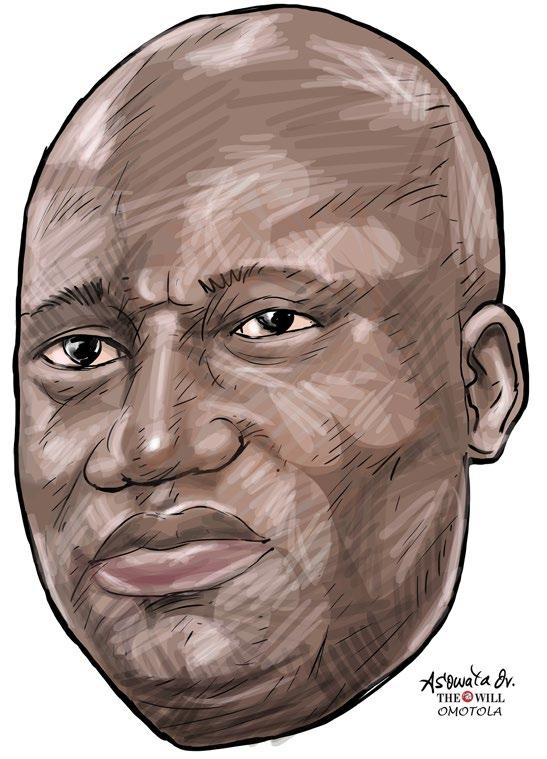
Continues on page 15 Continues on page 15

AS WE EMBARK ON THIS JOURNEY TOGETHER, IT IS ESSENTIAL TO UNDERSTAND THE LANDSCAPE OF PUBLIC PROCUREMENT REFORM, THE PIVOTAL PART YOU WILL PLAY IN ITS SUCCESS, AND THE KEY BEHAVIORAL ELEMENTS THAT WILL SET YOU APART AS LEADERS IN THE PROCUREMENT CADRE,” HE SAID
According to him, the Procurement Process reform marks an era of critical landscape which every stakeholder must understand, appreciate and participate in.
“As we embark on this journey together, it is essential to understand the landscape of Public Procurement Reform, the pivotal part you will play in its success, and the key behavioral elements that will set you apart as leaders in the procurement cadre,” he said.
Noting that “Public Procurement Reform is not just a buzzword,” he said, “it is a necessary evolution of our practice to meet the changing demands of the public sector and society at large.”
Itemising the pillars of his administration, he said, “Our journey of Public Procurement Reform will be driven under the following four pillars: Modernisation of legislative and regulatory framework; Strengthening of institutional framework and management capacity; Improvement of procurement operations and market practices; and Strengthening integrity of public procurement system.”
The Acting D-G who would not leave anything to guesswork or confined to the realm of ambiguity, took time to explain the details of the 4-pillar objective of the firm under his watch.
“Although the objectives of procurement reform are multifaceted, I would like to mention just a few of what we put on the front burner,” he explained. These include the programme of modernizing the Public Procurement Regulatory Framework, simplifying and streamlining the procurement process, reducing the delivery timeline of BPP operations and implementing a reengineering process to “ensure Organizational Culture Change, and Transform and Re-brand the BPP as a proactive and effective regulator and anti-corruption agency.” He paid tribute to the organization, institutions and groups that supported the agency in the fight against corruption.

ideation meetings.”
Other facilities are a 200KVA diesel generator, diesel storage tank, generator house, borehole, overhead water tank, perimeter mesh wire fence, a car park, as well as shallow drains and landscaping.
In his remarks at the ceremony, the Executive Secretary of NCDMB, Engr. Felix Omatsola Ogbe, said the studios and hub were initiated in furtherance of Federal Government’s aspirations for development of competent technical manpower to support activities in the oil and gas industry and its linkage sectors. The impartation of specialisation skills through expansion. According to the NCDMB boss, who was represented by the Board’s Director in charge of Capacity Building, Dr. Ama Ikuru, “We shall keep enhancing institutional capacity to equip our students with the requisite knowledge and skills needed to compete globally in the wake of the 4th industrial revolution where Artificial Intelligence, data science, Internet of Things, robotics dominate. Recalling several interventions by the NCDMB in academic institutions to boost acquisition of contemporary skills, Engr. Ogbe said, “the Board has carried out the upgrade of many vocational schools and universities under its Technical and Vocational Education and Training Centres (TVETs) upgrade programme” and that it believes in “the significance of education particularly the Science, Technology, Engineering and Mathematics (STEM) courses,”
In his own address, the Managing Director and Country Chair of SPDC, Mr. Osagie Okunbor, described the Engineering Design Studio and ICT Hub as a “very important human capital development project” that has resulted from a fruitful collaboration between SPDC, JV partners, notably, NNPCL, SPDC, TotalEnergies, Nigeria Agip Oil Company (NAOC), and NCDMB.
Represented by the General Manager, External Relations, Shell Petroleum Development Company (SPDC) Igo Weli, Okunbor disclosed that FUTO was “selected to benefit from institutional strengthening in the catchment areas of SPDC’s Assa North Ohaji South Gas Development Project”.
He added that the facility was in line with the associated Nigerian Content Human Capacity Development Plan” and “in accordance with the provisions of the NOGICD [Nigerian Oil and Gas Industry Content Development] Act, 2010 and NCDMB’s HCD Guidelines of 2020 modernization of academic infrastructure, he noted, has to be accelerated.
He promised that “A 40KW solar system will be installed in the coming weeks to ensure sustainable energy supply” to the facility.
In his address, the Chief Upstream Investment Officer, NNPCL Upstream Investment Management Services, Mr. Bala M. Wunti, observed that “Innovation thrives in an environment where ideas can be freely exchanged and developed,” adding that “The Engineering Studio and ICT Hub is designed to be such a place where students, researchers, and faculty can collaborate on projects, share knowledge, and push the boundaries of what is possible.”
According to Imokhuede, the objectives set out by the Acting D-G will surely redefine the culture of business as usual at BPP. I am pleased that he has a vision and has the capacity to pursue it, given his experience in the agency as head of the Legal unit. Fidelity Bank Posts N81.6bn Pre-Tax Profit in Q3 2024
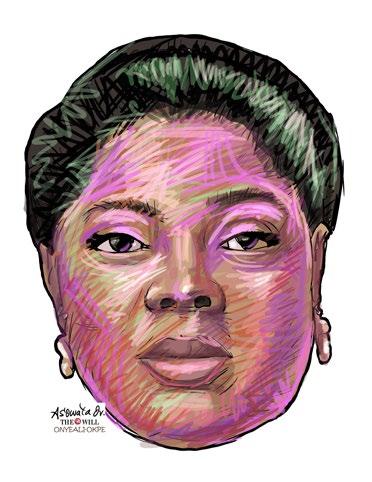
Fidelity Bank Plc has released its financial results for the third quarter of 2024, reporting a pre-tax profit of N81.6 billion, marking a 135.5% increase from the N34.6 billion recorded in the same period last year.
For the nine-month period ending September 30, 2024, Fidelity’s cumulative pre-tax profit reached N281.4 billion, up by a significant 153.54% year-over-year compared to 2023.
Net interest income for the third quarter also experienced a solid boost, rising by 60.16% to N139.5 billion from N87.1 billion a year earlier. Furthermore, earnings per share doubled, up by 114.61% year-over-year, reaching N1.99— reflecting increased profitability.
Gross Earnings rose to N249.5 billion, up 76.12% YoY, while Net Interest Income: jumped to N139.5 billion, up 60.16% YoY.
Credit Loss Expense was N12 billion, down 1.98% YoY, as Fee and Commission Income: N20.7 billion, up 69.19% YoY.
During the period, Fee and Commission Expense dropped to N1.4 billion, down 24.73% YoY as
the bank’s Pre-tax profit hit N81.6 billion, up 135.50% YoY.
On the other hand Post-tax profit rose to N63.8 billion, reflecting an increase of 114.61% YoY, as Earnings per Share: was N1.99, up 114.60% YoY.
The bank’s Total Assets was N9.5 trillion, up 52.96% YoY as Cash and Cash Equivalents jumped to N1.1 trillion, up 103.81% YoY.
In the third quarter of 2024, Fidelity Bank’s gross earnings surged by 76.12%, reaching N249.5 billion—a substantial increase from the N141.6 billion recorded in the corresponding period in 2023.
The bank’s net interest income climbed to N139.5 billion from N87 billion in Q3 2023, reflecting a 60.16% year-over-year increase.
Additionally, the bank achieved cost reductions in credit loss and fee and commission expenses, which decreased by 1.98% and 24.73%, respectively, year-over-year.
Meanwhile, fee and commission income rose by 69.19% to N20.7 billion.
Fidelity’s pre-tax profit rose by 135.5% yearover-year, reaching N81.61 billion in Q3 2024, up from N34.65 billion in the same period last year. For the nine-month period, this brought cumulative pre-tax profits to an impressive N281.4 billion.
This upward trend extended to the bank’s earnings per share, which soared from N0.93 to N1.99—demonstrating a solid return for shareholders.
Represented by the Senior Advisor Stakeholders Relations, Mrs. Halimat Wilson, the NNPC top official stated that the true impact of the facility would be measured by the success stories that emerge from it. *Continues online at www.
Profit after tax also witnessed substantial growth, jumping by 114.61% to N63.8 billion from N29.7 billion in the same period of 2023.
As of September 30, 2024, Fidelity Bank reported total assets of N9.54 trillion, reflecting a 52.96% year-over-year increase.
This growth was driven by loans and advances to customers totaling N4.25 trillion, along with cash and cash equivalents amounting to N1.16 trillion. Fidelity’s investment securities portfolio, valued at N1.84 trillion, contributed to its income stream.On the liabilities side, the group reported total liabilities of N8.85 trillion.


BY ADÉMÓLÁ ÒRÚNBON
Our nation is at a critical juncture where the impact of economic crises, global challenges, tumbling currency, insecurity and climate change is affecting the ability of many citizens to feed themselves. The figures are striking. As of March 2024, the food inflation rate increased by 40.01 percent, which is about 15.56 per cent higher than the March 2023 rate.
With the complexity and inter-dependence of the factors responsible for the current food crises, our approach to addressing them must go beyond the conventional means. We need a more agile approach to address the current food crises. An approach that can quickly adapt to our changing circumstances and effectively address the complex factors contributing to the crises. For this approach to be viable, it has to be rooted in three pivotal elements.
First, this approach must be holistic enough to consider the challenges in every phase of our food system and account for their current realities. This means that our approach must tackle the root causes of issues in our production, aggregation, processing, distribution, consumption and disposal, as well as ensure smooth, supportive, equitable coordination.
Issues of insecurity, such as kidnapping and farmer-herder clashes, especially in rural communities, are some of the major factors that have caused many farmers to abandon their farms and led to reduced food production. This approach has to do everything to guarantee the safety of our farmers.
The recent setting up of ìAgro Marshalsî tasked with the responsibility of safeguarding farmlands, schools and palaces in Ekiti State is a commendable step that should be embraced by other states.
It must be emphasised that State or local government administrations will do a better job in this regard, as each community possesses peculiar local situations that can be best understood by its people.
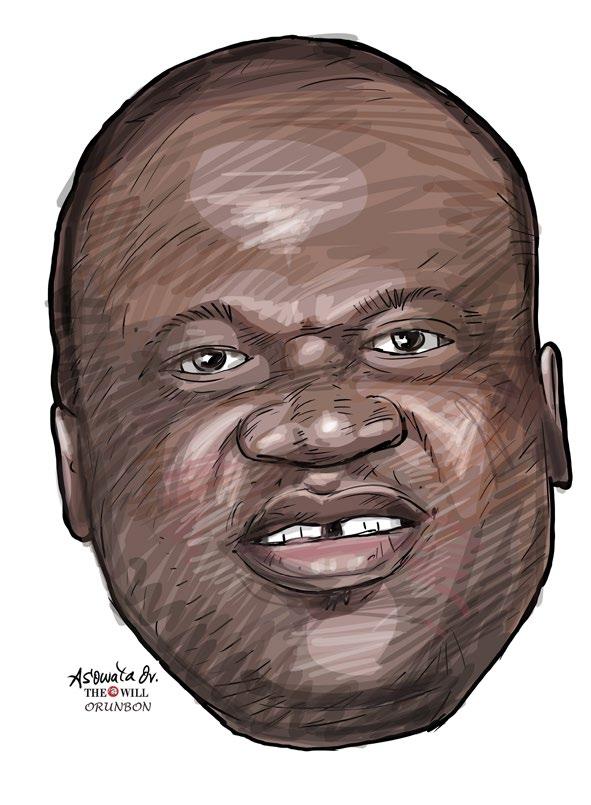
In implementing this, the government must ensure proper coordination with different security outfits and equitable distribution. The impact of climate change on our food production is becoming evident, with increasing cases of droughts, flooding and soil degradation in different parts of the country. It is time to face this reality and begin to prioritize climate change mitigation and adaptation measures. Many of the current agricultural institutes were established because of challenges facing the agricultural systems at some point in the past. Some of these challenges are now antiquated. It is time to update the mandates of agricultural institutes and institutions (or create new ones) to reflect todayís challenges.
The impact of fuel subsidy removal on the distribution and prices of food cannot be overstated. Embracing an agile approach might mean setting up special channels for food transport across the country. Similar approaches have been carried out in some developed countries and tagged with names such as ìGreen Channel.î This might involve providing access to special buses and trains that can assist farmers in moving their food items in groups at subsidised costs.
If policy makers continue to look at food insecurity problems, including poverty and insecurity, with one stone and be able to respond to newer problems
In addition, federal or state administrations can complement these efforts by harnessing the opportunities in technological advancement and providing ìemergency alarms or phonesî for farmers. These devices can be used to alert local security outfits immediately in case of insecurity.

Second, this approach must involve multidisciplinary collaboration in tackling the different challenges facing our food system. Leaving the task of addressing our current food insecurity solely to the Ministry of Agriculture and Food Security is like trying to build a house with just brick. While bricks are essential, a single material is not enough to complete the project. Similarly, addressing our current food insecurity challenges demands effective collaboration and input from almost all ministries, agencies and parastatals.
By utilising a stakeholder engagement model, each ministry can develop plans to support the Ministry of Agriculture. Further, each state must develop a food system plan that details its mechanism for food production, distribution, export, interventions and regulation. This food system plan must include short, medium and long-term priority actions for a sustainable food system in each state. Private sectors, trade associations, civil society organisations and every stakeholder in the value chain also have roles to play in this collaboration. Finally, for this approach to be effective and
sustainable, it must be rooted in a commitment to the right of every Nigerian to adequate, healthy and affordable food, regardless of their socio-economic status. The right to adequate food is an agreement contained in many international instruments and even in the constitution of our country.
Article 16 (2) of our 1999 constitution rightly states that ìThe State shall direct its policy towards ensuring: suitable and adequate shelter, suitable and adequate food, a reasonable national minimum living wage, old age care and pensions, and unemployment, sick benefits and welfare of the disabled are provided for all citizens.î This provision does not mandate the government to knock on every door of its citizens and share food items (except, of course, in unfortunate situations of war). However, it requires that the government must do everything in its capacity to ensure its citizens have the enabling environment and support to produce, distribute and access food. It means we must create a food system where profit does not take precedence over empathy and the right of fellow citizens to food.
The ripple effect of hoarding and hiking food prices, if allowed to continue, will take its toll on everyone. Food is a necessity and right, and depriving people of this right is also depriving them of the right to live. Our state actors also have a significant role to play in protecting this right through consumer protection actions.
An agile-based approach to our current food insecurity can also be a means to reduce social inequalities in our communities. A common adage among our people says that ìif hunger is removed from poverty, then poverty becomes insignificant.î from an agile-based perspective, we can solve many If policy makers continue to look at food insecurity problems, including poverty and insecurity, with one stone and be able to respond to newer problems. We can come up with more holistic solutions that can renew the hope of our people. We can use our current food crises as a catalyst for the radical transformation of our food systems to a more sustainable, effective system that can address current and future food insecurity and other interrelated issues.
•Orúnbon is a public affairs analyst












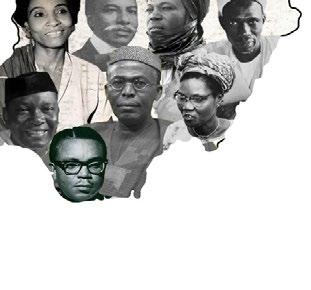















Half Page N1, 300, 000
Double Spread N1, 550, 000

Double Spread Half Page N1, 200, 000
10X6 N700, 000
10X5 N650, 000
10X4 N600, 000
10X3 N500, 000
9X6 N440, 000
9X5 N395, 000


9X4 N335, 000
9X3 N310, 000
8X6 N410, 000
8X5 N380, 000




7X5 N320, 000



7X4 N315, 000
6X5 N280, 000

6X3 N145, 000
6X2 N85, 000
5X2 N70, 000
4X4 N160, 000
4X3 N95, 000
4X2 N65, 000
3X3 N60, 000
3X2 N50, 000
2X2 N30, 000
2X1 N15, 000 1X1 N7, 000
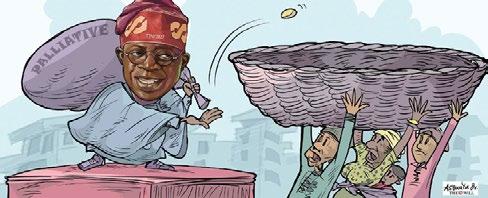





































Party

EDITOR Ivory Ukonu

Continues on page 20






Damilola Marshal, daughter of popular Fuji maestro, King Wasiu Ayinde Marshal, speaks with IVORY UKONU about her appointment as Senior Special Adviser on Tourism and Culture to Governor Babajide Sanwo-Olu of Lagos State and sundry issues. Excerpts:
What are some of your duties as the Senior Special Assistant to Governor Babajide SanwoOlu on tourism and culture?
Iassist the governor Babajide Sanwo-Olu on the promotion of tourism, arts and culture in the state and to bring up new ideas that can help push the state’s economic viability
It's been about five months since your appointment, and you have obviously hit the ground running. What is the top priority in the ministry that you are currently tackling?
I am trying as much as possible to take tourism to vulnerable areas that have been devoid of any form of tourism because the promotion of tourism in these communities will help curb unemployment and social vices. Also, tourism does not need rigorous education before one can be employed within the value chain.
Besides your outlined duties as SSA, what are your own personal plans which you are cultivating to complement what is expected of you?
Humanitarian activities are a passion for me, and I will not relent in my efforts to bring out the best in my immediate environs through it.
Did you see the appointment coming or did it take you by surprise?
To be honest with you, I wanted it, I wanted to contribute to the socio-economic development of the state. Also, coming from a family with an entertainment background, I guess it was my only sure way of achieving it
Why do you think you merit the appointment, what are some of your antecedents?
As a legal practitioner, it is safe to say I have been in the entertainment scene for a long time as an entertainment lawyer and in that scene, I have been able to identify the lacunas and loopholes in the Nigerian entertainment industry. So basically, I am here to contribute my quota. My appointment underscores the governor's commitment to promoting and developing the tourism sector in Lagos State. Like I said earlier, with my background in law and my familial ties to the entertainment industry, I am poised to contribute significantly to the state’s efforts to enhance its tourism offerings and attract visitors from around the world.
Is this a steppingstone to you building a political career?
I can only say that I just want to contribute to the socio-economic development of Lagos State for now. I am open to any position that will help me develop our nation
What was your dad's reaction to your political appointment?
My dad prefers I end up as a judge and not a politician. But he was nonetheless happy about the appointment.

With your new appointment, do you still have time to practice law?
Of course, 100 per cent. I still practice. Once a lawyer, forever a lawyer
Do you own a law firm?
Prior to my appointment, I was the principal partner at Damilola Ayinde Marshal and Co where I brought my wealth of experience and expertise in legal matters. The law firm serviced both international and local clients on a broad spectrum of practice areas ranging from property law, criminal defense, and corporate law practice to family and estates law.
What aspect of law do you practice?
I am a property and criminal lawyer. Both aspects of the law practice are quite lucrative.
Was law your choice or were you compelled to study it?
Studying law was my choice because I have a very high passion to see that people get justice and not be oppressed.
Are you the only lawyer in the family?
No, I am not but I am the only one practising.
One of my sisters, Monsurat was the first to be called to the bar.
Where did you get your law degree?
I graduated in 2013 from the North America University Houdegbe, Cotonou, Benin Republic.
I attended Nigeria Law School, Abuja and I was called to the Nigerian Bar immediately afterward in 2015. In 2022, I got a master's in law degree from the University of Lagos.
What are some of the things that must have shaped you to become who you are today?
Having a very strict father who does not give room for failure of any kind.
What is the most difficult challenge you have ever had to face in your life?
Being the daughter of a famous father, King Wasiu Ayinde Marshal. It is a huge challenge that I face regularly.
What would you consider as your greatest achievement in life so far?
Living my dreams which is being a lawyer
What motivates you?
The resilient spirit of a common Nigerian keeps me going
How do you unwind when you aren't busy chasing the 'paper'?
The gym is my best friend. It really helps to keep me mentally and physically fit and balanced.

STORIES BY IVORY UKONU
Olori Ivie Atuwatse III, wife of the Olu of Warri, Ogiame Atuwatse III, has joined the ranks of eminent personalities such as Winston Churchill, Queen Elizabeth II, Nelson Mandela, Stephen Hawking, and Princess Diana who have been conferred with the Freedom of the City of London award in an illustrious ceremony held at Guildhall, United Kingdom. The award is one of the United Kingdom’s most esteemed civic recognitions, a rare honour that celebrates her transformative leadership and her commitment to amplifying Africa’s authentic narratives on the global stage. The Freedom of the City of London Award, dating back to 1237, is one of the oldest surviving traditional ceremonies still in existence today, symbolising a unique bond between the City of London and its most distinguished recipients. The award recognises individuals who have made exceptional contributions to society, embodying values of leadership, courage, and philanthropy. Barely a month ago, she was conferred with the US President’s Lifetime Achievement Award, a prestigious honour conferred by Americorps and the office of the President of the United States. The award is one of the highest recognitions given to individuals who have demonstrated an exceptional commitment to volunteerism and improving lives. A distinguished advocate for Africa’s development, Olori Ivie Atuwatse III, the Queen Consort of Warri, is a visionary and a trailblazer. Through her initiatives with the Iwere

Foundation and Elevate Africa, she has dedicated herself to creating sustainable pathways for growth, poverty alleviation, and social equity in her community and beyond. Her leadership extends to initiatives that inspire resilience and promote innovation across the continent, reflecting her commitment to shaping a prosperous future for Africa.
How Tunde Bakare plans to celebrate 70th birthday
In about a week's time, November 10 to be precise, clergyman cum politician, Tunde Bakare, will be clocking 70 years. Bakare who has been unusually quiet, a far cry

TContinued from page 18
MUCH ADO ABOUT JULIUS ONI'S 'REVERSE JAPA'
how Oni who was the associate professor of Orthopaedic Surgery had supposedly taken the very bold decision to leave his highly placed job at Johns Hopkins Hospital to return to Nigeria to give Igbobi Orthopaedic Hospital a run for its money by transforming musculoskeletal care in Nigeria.
at some point during Oni's practice in the United States.
In August 2021, the number one citizen allegedly underwent a knee surgery at the John Hopkins University Hospital in Maryland where Oni practised and he (Oni) allegedly attended well to him, thus endearing him to the number one citizen.
Before his relocation, Oni said he relinquished his duties as Director of the Joint Replacement Fellowship and his role as the Diversity Chair for the Department of Orthopaedic Surgery at Johns Hopkins. He however retained his position as the Director for Global Orthopaedics. He said he took a leave of absence from his job at Johns Hopkins, sold his property and then moved back with his family. He also claimed that his interest in orthopaedics was spurred by his paternal grandmother’s inability to access care while she suffered from end-stage knee arthritis.
he years of 'romance' between businesswoman Aisha Achimugu and the Caribbean Island of Grenada has finally paid off. Oceangate Oil and Gas Engineering, one of her companies, has secured a historic multibillion dollar deal with Global Petroleum Group to launch one of the country’s largest oil and gas ventures. This transformative partnership aims to develop Grenada’s significant hydrocarbon reserves, paving the way for the island nation to emerge as a major energy hub in the Caribbean and beyond. With a vision to fuel long-term economic growth and sustainable development, this ambitious project promises not only to elevate Grenada’s energy production capabilities but also to foster job creation, infrastructure development and technology transfer within the local economy.
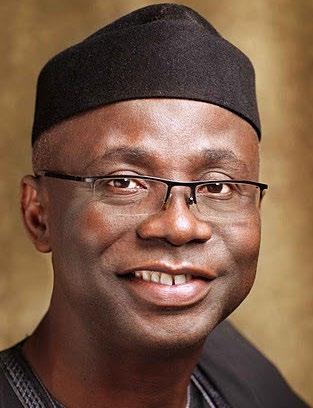
from his usual vocal self, refusing to contribute to national discourse since he failed woefully at the 2022 presidential primary of the All Progressives Congress, APC, after expending a whopping sum of N100 million, plans to use the occasion of his milestone birthday to come out of his over two years hibernation. Activities to celebrate him has been scheduled to last a week.
There will be an unveiling of his latest book, 'The Last, But Definitely Not The Least—The Autobiography Of Pastor Tunde Bakare’. The book is expected to offer insights into his experiences, spiritual journey, socio-political interventions and vision for the nation and the world.
There will also be an inauguration of the Law Endowment Fund and Solar Project for the Law Department of the University of Lagos, his alma mater, to promote legal education and empower future leaders in the field of justice and governance. This will be followed by an inaugural lecture organised by the legal department of Citadel Global Community Church under the auspices of The Citadel Centre for Development (TCCD). The lecture is expected to x-ray the recent Supreme Court decision on Local Government Autonomy entitled: ‘Democratic System of Local Government as Third Tier of Government in Nigeria: Matters Arising’. Prof. Taiwo Osipitan (SAN) has been pencilled down to be the guest lecturer while Chief Wole Olanipekun (SAN) will be the chairman of the occasion. Also Dr. Reuben Abati will moderate the panel session.
Musculoskeletal health refers to the performance of the locomotor system, comprising intact muscles, bones, joints and adjacent connective tissues that bind them together. His return undoubtedly attracted mixed reactions among Nigerians. While some applauded his decision, not a few questioned his rationale for returning to a country plagued by economic woes, hardship and high cost of living particularly at a time multinationals are packing up their bags and leaving the country. Well, it turns out that Oni who has a portfolio of real estate and assets which he manages as the CEO of Xsite Capital, a private equity multifamily real estate company, was allegedly motivated to return to Nigeria with the help of the number one citizen. His influence allegedly helped to facilitate Oni's easy return to Nigeria. Apparently, the number one citizen was allegedly one of his patients
Continued from page 18
With a bachelor's degree in Biology from the State University of New York at Plattsburgh, a medical degree from the Howard University College of Medicine, the 41 year-old completed his Orthopaedic Surgery Residency Programme at the New York University Hospital for Joint Diseases.
appointed to that ministry, recently clocked 80 years.
To celebrate, the ageless beauty who has ruled the social scene for over 40 years, hosted dignitaries to a party at the Eko Hotel and Suites.

Set against the backdrop of the Caribbean’s evolving energy landscape, the venture is expected to provide unprecedented economic opportunities, delivering benefits across sectors and positioning Grenada as a key energy supplier in the region. Recall that Grenada was Aisha's choice for a luxurious destination 50th birthday party earlier in the year. She hosted Nigerian socialites, politicians, businessmen and women, etc, to a weeklong party at Calivigny Island and Silversand Grenada, an exotic five-year-old seven-star luxury resort located in Grand Anse beach located on the island which cost about $132,000 per night. Aisha, who is also a philanthropist, is the founder and managing director of Abuja-based Felak Concept Group, a company that is into consultancy services related to health, equipment procurement, training and capacity building; founder of Altex Engineering Oil & Gas Limited and had also made her mark in maritime and transportation engineering. She is the first woman transaction advisor/consultant to develop a seaport (Ibaka Seaport) in Nigeria.



Chinedu Okoli aka Flavour and the Veentage band were her choice of singers to excite her guests on the dancefloor.
Some of the guests in attendance included Sisi Abba Folawiyo, Bisi Olatilo, Maiden Ibru, Florence Ita-Giwa, Chief Biodun Shobanjo, Princess Adejoke Adefulire, Chief Kessington Adebutu, Bimbo Oloyede, Chief Ajibola Ogunsola, Chief Julius Adelusi, Erelu Abiola Dosunmu, Sena Anthony etc.
The Iyalaje Iyalode of Ibadanland who has made significant contributions to the business world and society has been inundated with eulogies from very distinguished personalities from far and near over her joining the octogenarian club. Known for her notable achievements in various
fields, the corporate amazon is a trailblazer in Nigerian politics, having become the first woman to be appointed as Minister of Industry by the Federal Government of Nigeria in December 1997 and August 1998, during the Abacha military regime. She has held prestigious positions such as President of the Lagos Chamber of Commerce and Industry. She was the first Nigerian woman to be appointed the Minister of Industry. Her achievements and contributions have made her an icon in the business world and beyond.
A recipient of the National Honour of Commander of the Order of the Niger (OON) in 2003, Dr. Onikepo has no doubt enjoyed so much grace as her life still radiates class and beauty at 80. She is married to Chief Adebayo Akande Adebayo, MFR, the Ekaarun Olubadan of Ibadanland who is a highly successful business magnate and the owner of Splash FM in Ibadan.
STORIES BY IVORY UKONU
The Awujale of Ijebuland, Oba Sikiru Kayode Adetona, has conferred the prestigious title of Lapo Ekun of Ijebu Ode in Ogun State on popular businessman, Tunde Odulaja at a ceremony which drew dignitaries from all parts of the world to the ancient city including Governor Dapo Abiodun of Ogun State and his wife, Bamidele; the Chief of Staff to the President, Femi Gbajabiamila; Secretary to the Ogun State Government, Tokunbo Talabi; a former governor of the state, Senator Gbenga Daniel; the state’s Commissioner for Finance, Dapo Okubadejo; Senator Olorunibe Mamora and the Chairman of Ijebu Ode Local Government, Emilola Gazzal, among other notable personalities



Admonishing the newly decorated high chief to be a good community leader and show exemplary leadership, the monarch reminded Odulaja of his responsibilities to the town and the people. Oba Adetona also offered traditional prayers of good health and long life for the new community leader while reminding him of the need to be above board, being one of the 13 personalities that would pick the next Awujale after he is gone. Odulaja had earlier taken his oath of office and an oath of allegiance to the palace to kickstart the ceremony. The journey to becoming the Lapo Ekun of Ijebu began with Odulaja going into seclusion for seven days starting from October 1st. The seclusion signals the commencement of the enthronement process for traditional rulers and high-ranking members of the Awujale council. As the Lapo Ekun elect, Odulaja is compelled by tradition and historical antecedents, to observe the ritual rites and go through the rigours of an initiation before the Awujale could confer on him,

the rulership of the Ijasi community. The seclusion is majorly for reflections and prayers for the Awujale and Ijebu Ode communities. There will also be spiritual interventions for all other chiefs, 'Otunbas' and the good people of the Ijasi community. Pledging that Ijasi and Ijebu-Ode would continue to thrive as a community under his reign, a visibly elated Odulaja said his vision for the people is to see Ijebus being vibrant in their commercial ventures and to see more of his people being educated. He also appreciated the Awujale and the community for finding him worthy of the elevated throne.
Ehi Braimah, Editor-in-Chief of 'Naija Times,' has been honoured with the Chancellor’s Alumni
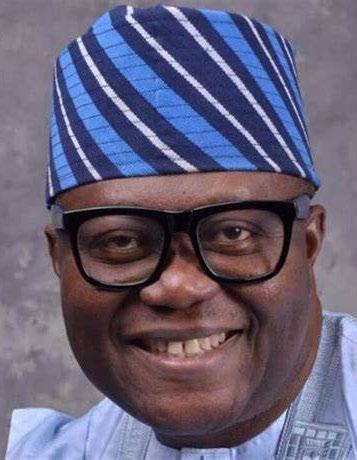
Ehi Braimah, Editor-in-Chief of 'Naija Times,' has been honoured with the Chancellor’s Alumni Award at the University of Roehampton in London.
Braimah was honoured alongside two Nigerians, Humphrey Aghoghovbia Jr. and Marian Adejokun, at an event held late last month at the university campus. He was honoured with the Alumni Innovation and Inspiration Award for his contributions to evidence-based reporting in Nigeria.
The institution praised Braimah for promoting balanced journalism through his news platform, particularly during the 2023 presidential election, and for advocating for societal reforms. He was also described as a prominent voice for political and economic reforms, maintaining rigorous standards of journalism and fighting corruption. Braimah launched multiple media platforms and continues to lead Naija Times, contributing to thought leadership and journalism after completing his MBA at Roehampton in 2016. He also serves as deputy president of the Nigerian American Chamber of Commerce, strengthening business ties between Nigeria and the US.

Veteran Nollywood actor, Jide Kosoko has been appointed as the head of the Oteniya branch of the prestigious King Kosoko royal family in Lagos. He was presented with the Oloriebi in Council certificate and was re-confirmed as the Ambassador of the family. Acknowledging his new title, Kosoko took to his social media writing, “Officially, I am now the Head (Olori ebi) Oteniya branch of the King Kosoko Royal Family, as I was presented to the Oloriebi in Council yesterday, 12th of October. I have also been re-confirmed as the official Ambassador of the Family. I pray that Almighty God, In his infinite mercy, gives me the wisdom to contribute my quota to the unity and progress of the Family”. The 70-year-old actor who began his career as a child actor in 1964 in a television production named ‘Makanjuola’ has featured in several Nollywood movies in both English and Yoruba languages.
Maria Olateju Philips, a former commissioner in Lagos State during President Bola Ahmed Tinubu's time as governor and the first daughter of late Ambassador Antonio Deinde Fernandez has been in a mournful mood since Thursday October 3rd, 2024. It was the day she lost her dearly beloved husband, Engineer Olanrewaju Afolabi Philips to the cold hands of death. He was aged 76 at the time of his death.
Despite losing the man she was married to for over 30 years, the board room lioness remained stoic as she made burial arrangements
for him ensuring that his Christian wake which held on Wednesday October 30 at Harbour Point, Victoria Island, Lagos; his funeral at Cathedral Church of Christ Marina, Lagos as well as his interment on Friday November 1st went as planned. Besides his wife, the late Philips was survived by four children, one of whom is Derin, a former Disc Jockey aka DJ Caise turned investment manager who is married to Xerona, the first daughter of Donald Duke, a former governor of Cross Rivers State. The late Philips also left behind eight grandchildren.
Prophet Temitope Balogun Joshua may be late but his wife, Evelyn has fought tooth and nail to ensure that the legacy he left behind, Synagogue Church of All Nations, SCOAN, isn't buried with him. Following his death, the mother of three who has been an active member of the ministry since inception, assumed full responsibility of the church. She did a fine job of weeding out the enemies within to enable her successfully to run the affairs of the ministry without hindrance.
For this, she was recently honored with the key to the city of Resistencia and the award of an illustrious special guest on behalf of the Mayor of the city during a historic 2-day crusade which she hosted in the Latin American country,

specifically the Portal Del Cielo in Resistencia, Chaco. The crusade, which had more than 80,000 attendees who came from neighboring countries like Chile, Paraguay, Brazil, and Uruguay, braving the chilly 19-degree weather to secure their spots, was proof of their love for the late clergyman and by extension, his wife who brought them a message of hope. In addition, Evelyn, also received a special award from the President of the Chamber of Deputies
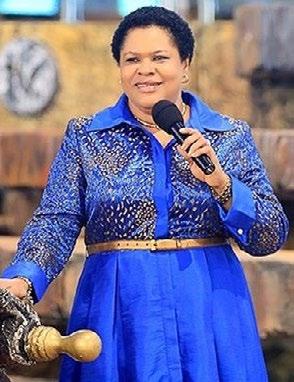
Photo Editor: Peace Udugba [08033050729]

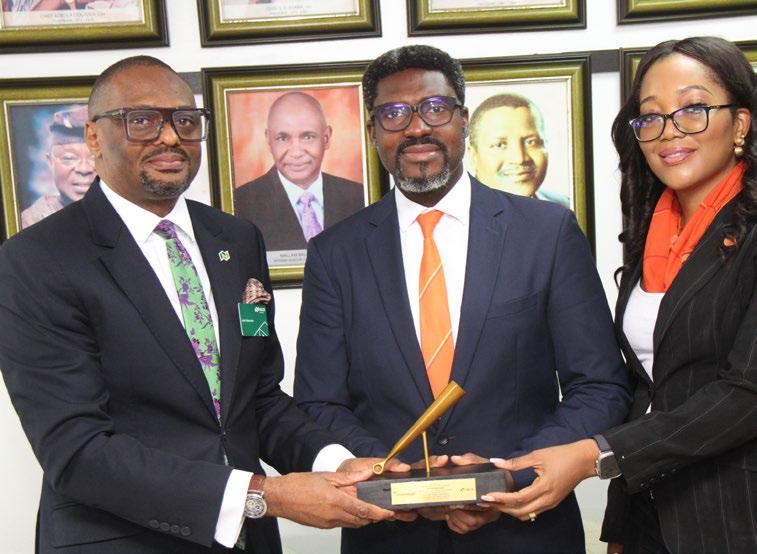
L-R: Chief Executive Officer, Nigerian Exchange Limited (NGX), Jude Chiemeka; Ag. Managing Director, Norrenberger Asset Management Limited, Pabina Yinkere and Group Chief Financial Officer, Norrenberger, Queen Ehi-Uujamhan, during the Closing Gong Ceremony by Norrenberger Group commemorating the listing of the Norrenberger Islamic and Turbo Funds on the Exchange in Lagos on October 29, 2024.
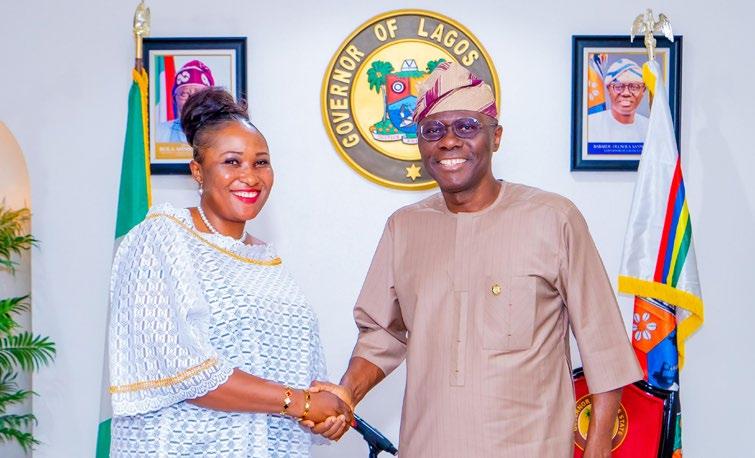
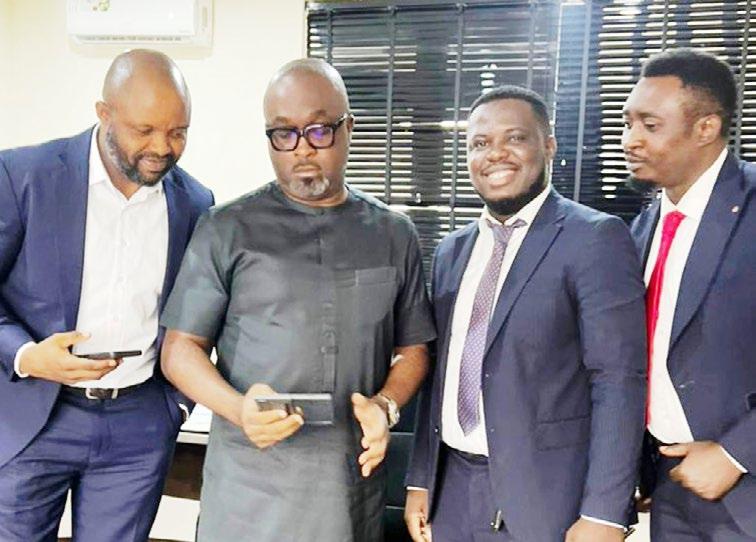
Enugu
and
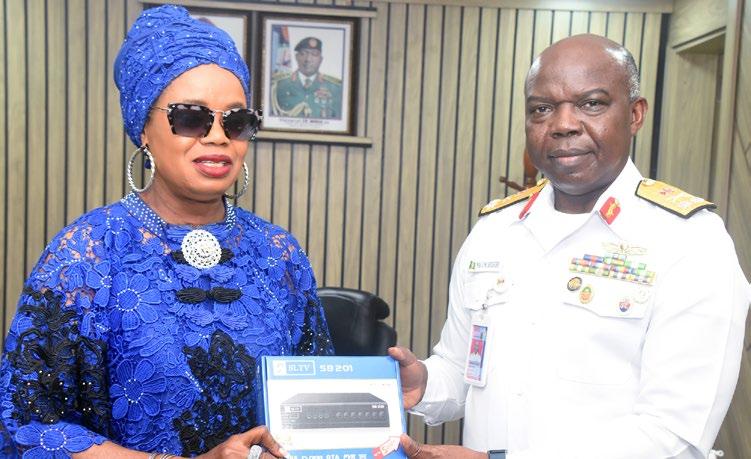







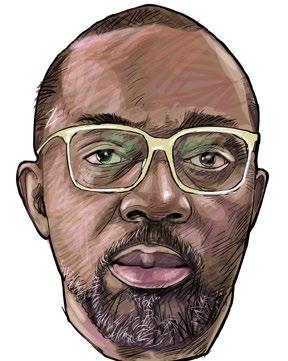

ogannah@thewillnews.com
Last week’s ruling of a Federal High Court in Abuja suspending the payment of Rivers State’s federal financial allocation has sparked serious concerns over the judiciary's scope of power, particularly when juxtaposed with the 2004 landmark Supreme Court ruling involving Lagos State. That decision, delivered during the tenure of President Olusegun Obasanjo, definitively ruled that the executive arm had no authority to withhold allocations due to a state, marking a crucial precedent that underscores the limitations of both executive and judicial authority over federal disbursements to Nigeria's federating units. This precedent is now in question, as the Rivers State ruling indicates a possible judicial overreach by a lower court, casting doubt on the stability of previously established constitutional norms.
In 2004, Lagos State, under then-Governor Bola Tinubu, unilaterally created additional local government areas to accommodate the city’s growing administrative needs. The Federal Government, led by President Olusegun Obasanjo, took exception to this move and decided to withhold Lagos State’s allocations as a punitive measure, insisting that the state revert to its original number of local governments.
Governor Tinubu declined, prompting a legal battle that culminated in the Supreme Court decision. The court ruled that the executive’s action was unconstitutional, asserting that no arm of government can withhold allocations to any state on grounds that interfere with the state’s sovereign rights as part of the federation. This ruling became a bedrock decision that, to this day, has informed understandings of state-federal financial relations in Nigeria.
The recent ruling involving Rivers State, however, has created a paradox by allowing the judiciary to halt the state’s federal allocations, seemingly contravening the Supreme Court’s decision in the Lagos case. It raises pertinent questions: where does the judiciary derive the authority to suspend allocations to a federating unit when even the executive branch lacks such power?
In this context, the judiciary’s action appears to contradict established constitutional limits, indicating an instance where judicial decisions are encroaching upon the financial autonomy of state governments. Such rulings undermine the stability of Nigeria's federal structure and could encourage a dangerous precedent where financial control becomes a tool for political manoeuvring within the judiciary.
The Rivers State matter has intensified discussions about the judiciary’s politicisation under this democratic depensation mainly dominated by the Peoples Democratic Party and the All Progressives Congress, which has seen a marked rise in judicial rulings favouring the political interests of the executive. While the judiciary appears to take sides in both political and civil disputes, it is eroding its credibility and, by extension, Nigeria’s democratic foundations and losing its mantra as the last hope of the ordinary man.
One of the primary issues compounding judicial impartiality is the growing influence of the executive over judicial welfare. Several instances have demonstrated how the executive branch extends financial incentives—housing, allowances, and vehicles—to judges, ostensibly as welfare benefits. While improving the judiciary’s material
conditions is a worthy objective, these gestures from the executive are widely interpreted as compromising judicial independence.
A judiciary that relies on the executive for its basic needs can scarcely claim to be a co-equal branch of government, as it may feel an implicit

obligation to favour the executive in sensitive cases.
The situation is especially pronounced in Abuja, where Nyesom Wike, Minister of the Federal Capital Territory, who is one of the protagonists in the political crisis in Rivers State, has introduced several welfare initiatives for the judiciary, ranging from allowances to infrastructure. Though well-intentioned, such actions reinforce the judiciary’s financial dependence on the executive, raising fears that this reliance may compromise judicial impartiality.
In a system where the executive is constructing residences and offering perks to judges, it becomes difficult for the judiciary to act as a check on executive power without bias. For the judiciary to function as a true guardian of democracy, it must operate independently, free from material dependence on any arm of government. I must also state here that some state governors have also engaged in this kind of gesture.
This erosion of judicial independence has far-reaching implications for Nigeria’s democracy. In recent years, Nigerians have observed a series of judicial decisions that seem to favour elites while ordinary citizens face harsh punitive measures for minor infractions. This growing perception that the judiciary serves only the interests of the powerful has severely undermined public trust in the legal system. Cases where high-profile individuals are given symbolic punishments, or evade justice entirely, highlight the unequal treatment within the legal system and deepen societal disillusionment with the judiciary.
Public trust in the judiciary is essential to a functioning democracy, as it ensures that citizens believe in the rule of law as an equalising force. When people lose faith in the judiciary’s ability to deliver impartial justice, they are less likely to respect legal processes, which can lead to anarchy and social fragmentation. The Rivers State ruling has thus reignited calls for judicial accountability and reforms that could restore confidence in Nigeria’s legal system.
For Nigeria’s democracy to thrive, the judiciary must reclaim its role as an independent arbiter of justice. This requires immediate reforms to address both judicial accountability and financial independence. The Nigerian Bar Association (NBA) has a pivotal role to play in championing these reforms, advocating an autonomous and robust judicial budget that ensures financial independence. Such reforms would prevent the executive from using financial incentives to influence judicial decisions and reinforce the judiciary’s ability to act impartially.
Moreover, civil society organisations also need to intensify their advocacy for judicial accountability, highlighting instances where rulings appear compromised by political interests. Public awareness campaigns that draw attention to judicial overreach and inconsistencies can pressure the judiciary to maintain higher standards of impartiality and integrity. By demanding transparency and accountability, Nigerians can work toward a judiciary that genuinely serves the interests of justice rather than political elites.
The phrase, “after the judge, it is God,” reflects the immense trust placed in the judiciary’s hands. This trust, however, comes with a responsibility: the judiciary must interpret laws in a way that strengthens democracy and upholds the constitution, rather than succumbing to political pressures. As seen in the Rivers State ruling, when the judiciary fails to uphold these responsibilities, it risks not only its own credibility but the very fabric of Nigeria’s democratic structure.
The multiple lawsuits associated with the political crisis in Rivers State should serve as a wake-up call to the judiciary. The suits must be adjudicated on their merit strictly adhering to established legal precedents and the constitution.
I may not be a legal scholar but my understanding of common-sense application of the law tells me that the Supreme Court is the highest court in the land. Its ruling in the Lagos case has already made clear that neither the executive nor the judiciary holds the power to interfere with state allocations. This is final until there is a constitutional amendment that states otherwise or when the apex court reverses itself.
Upholding this principle is essential for preserving the federal structure that underpins Nigeria’s democracy.
While the judiciary appears to take sides in both political and civil disputes, it is eroding its credibility and, by extension, Nigeriaís democratic foundations and losing its mantra as the last hope of the ordinary man